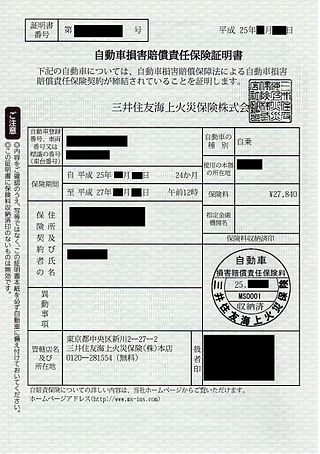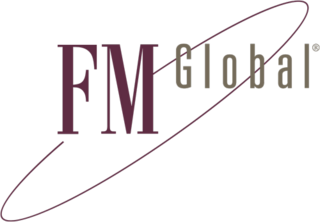
Insurance is a means of protection from financial loss in which, in exchange for a fee, a party agrees to compensate another party in the event of a certain loss, damage, or injury. It is a form of risk management, primarily used to protect against the risk of a contingent or uncertain loss.

Life insurance is a contract between an insurance policy holder and an insurer or assurer, where the insurer promises to pay a designated beneficiary a sum of money upon the death of an insured person. Depending on the contract, other events such as terminal illness or critical illness can also trigger payment. The policyholder typically pays a premium, either regularly or as one lump sum. The benefits may include other expenses, such as funeral expenses.
Title insurance is a form of indemnity insurance, predominantly found in the United States and Canada, that insures against financial loss from defects in title to real property and from the invalidity or unenforceability of mortgage loans. Unlike some land registration systems in countries outside the United States, US states' recorders of deeds generally do not guarantee indefeasible title to those recorded titles. Title insurance will defend against a lawsuit attacking the title or reimburse the insured for the actual monetary loss incurred up to the dollar amount of insurance provided by the policy.

Vehicle insurance is insurance for cars, trucks, motorcycles, and other road vehicles. Its primary use is to provide financial protection against physical damage or bodily injury resulting from traffic collisions and against liability that could also arise from incidents in a vehicle. Vehicle insurance may additionally offer financial protection against theft of the vehicle, and against damage to the vehicle sustained from events other than traffic collisions, such as keying, weather or natural disasters, and damage sustained by colliding with stationary objects. The specific terms of vehicle insurance vary with legal regulations in each region.
In an insurance policy, the deductible is the amount paid out of pocket by the policy holder before an insurance provider will pay any expenses. In general usage, the term deductible may be used to describe one of several types of clauses that are used by insurance companies as a threshold for policy payments.
Home insurance, also commonly called homeowner's insurance, is a type of property insurance that covers a private residence. It is an insurance policy that combines various personal insurance protections, which can include losses occurring to one's home, its contents, loss of use, or loss of other personal possessions of the homeowner, as well as liability insurance for accidents that may happen at the home or at the hands of the homeowner within the policy territory.
In insurance, the insurance policy is a contract between the insurer and the policyholder, which determines the claims which the insurer is legally required to pay. In exchange for an initial payment, known as the premium, the insurer promises to pay for loss caused by perils covered under the policy language.
Universal life insurance is a type of cash value life insurance, sold primarily in the United States. Under the terms of the policy, the excess of premium payments above the current cost of insurance is credited to the cash value of the policy, which is credited each month with interest. The policy is debited each month by a cost of insurance (COI) charge as well as any other policy charges and fees drawn from the cash value, even if no premium payment is made that month. Interest credited to the account is determined by the insurer but has a contractual minimum rate. When an earnings rate is pegged to a financial index such as a stock, bond or other interest rate index, the policy is an "Indexed universal life" contract. Such policies offer the advantage of guaranteed level premiums throughout the insured's lifetime at a substantially lower premium cost than an equivalent whole life policy at first. The cost of insurance always increases, as is found on the cost index table. That not only allows for easy comparison of costs between carriers but also works well in irrevocable life insurance trusts (ILITs) since cash is of no consequence.

Property insurance provides protection against most risks to property, such as fire, theft and some weather damage. This includes specialized forms of insurance such as fire insurance, flood insurance, earthquake insurance, home insurance, or boiler insurance. Property is insured in two main ways—open perils and named perils.
In its broadest sense, no-fault insurance is any type of insurance contract under which the insured party is indemnified by their own insurance company for losses, regardless of the source of the cause of loss. In this sense, it is similar to first-party coverage. The term "no-fault" is most commonly used in the United States, Australia, and Canada when referring to state or provincial automobile insurance laws where a policyholder and their passengers are reimbursed by the policyholder's own insurance company without proof of fault, and are restricted in their right to seek recovery through the civil-justice system for losses caused by other parties. No-fault insurance has the goal of lowering premium costs by avoiding expensive litigation over the causes of the collision, while providing quick payments for injuries or loss of property.
Liability insurance is a part of the general insurance system of risk financing to protect the purchaser from the risks of liabilities imposed by lawsuits and similar claims and protects the insured if the purchaser is sued for claims that come within the coverage of the insurance policy.
Marine insurance covers the physical loss or damage of ships, cargo, terminals, and any transport by which the property is transferred, acquired, or held between the points of origin and the final destination. Cargo insurance is the sub-branch of marine insurance, though marine insurance also includes onshore and offshore exposed property,, hull, marine casualty, and marine losses. When goods are transported by mail or courier or related post, shipping insurance is used instead.
Critical illness insurance, otherwise known as critical illness cover or a dread disease policy, is an insurance product in which the insurer is contracted to typically make a lump sum cash payment if the policyholder is diagnosed with one of the specific illnesses on a predetermined list as part of an insurance policy.

FM is an American mutual insurance company based in Johnston, Rhode Island, United States, with offices worldwide, that specializes in loss prevention services primarily to large corporations throughout the world in the Highly Protected Risk (HPR) property insurance market sector. "FM" is the communicative name of the company, whereas the legal name is "Factory Mutual Insurance Company". FM has been named the "Best Property Insurer in the World” by Euromoney Magazine.
Professional liability insurance (PLI), also called professional indemnity insurance (PII) but more commonly known as errors & omissions (E&O) in the US, is a form of liability insurance which helps protect professional advising, consulting, and service-providing individuals and companies from bearing the full cost of defending against a negligence claim made by a client in a civil lawsuit. The coverage focuses on alleged failure to perform on the part of, financial loss caused by, and error or omission in the service or product sold by the policyholder. These are causes for legal action that would not be covered by a more general liability insurance policy which addresses more direct forms of harm. Professional liability insurance may take on different forms and names depending on the profession, especially medical and legal, and is sometimes required under contract by other businesses that are the beneficiaries of the advice or service.
Insurance in the United States refers to the market for risk in the United States, the world's largest insurance market by premium volume. According to Swiss Re, of the $6.782 trillion of global direct premiums written worldwide in 2022, $2.959 trillion (43.6%) were written in the United States.

Agriculture Insurance Company of India Limited (AIC) is an Indian public sector undertaking headquartered in New Delhi. It is a government-owned agricultural insurer under ownership of the Ministry of Finance, Government of India.
Legal protection insurance (LPI), also known as legal expenses insurance (LEI) or simply legal insurance, is a particular class of insurance which facilitates access to law and justice by providing legal advice and covering the legal costs of a dispute, regardless of whether the case is brought by or against the policyholder. Depending on the national rules, legal protection insurers can also represent the policyholder out-of-court or even in-court.
Vehicle insurance in the United States is designed to cover the risk of financial liability or the loss of a motor vehicle that the owner may face if their vehicle is involved in a collision that results in property or physical damage. Most states require a motor vehicle owner to carry some minimum level of liability insurance. States that do not require the vehicle owner to carry car insurance include Virginia, where an uninsured motor vehicle fee may be paid to the state, New Hampshire, and Mississippi, which offers vehicle owners the option to post cash bonds. The privileges and immunities clause of Article IV of the U.S. Constitution protects the rights of citizens in each respective state when traveling to another. A motor vehicle owner typically pays insurers a monthly or yearly fee, often called an insurance premium. The insurance premium a motor vehicle owner pays is usually determined by a variety of factors including the type of covered vehicle, marital status, credit score, whether the driver rents or owns a home, the age and gender of any covered drivers, their driving history, and the location where the vehicle is primarily driven and stored. Most insurance companies will increase insurance premium rates based on these factors and offer discounts less frequently.

Vehicle insurance in France is an compensation-based insurance policy for terrestrial motor vehicles that are insured in France and circulate on French territory, as well as in the European Economic Area and the Green Card zone.








